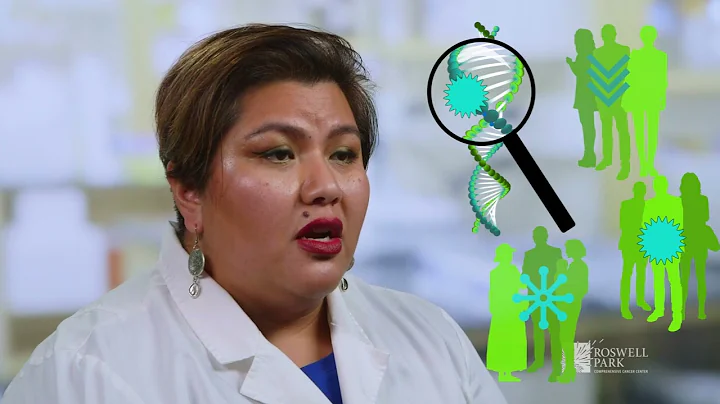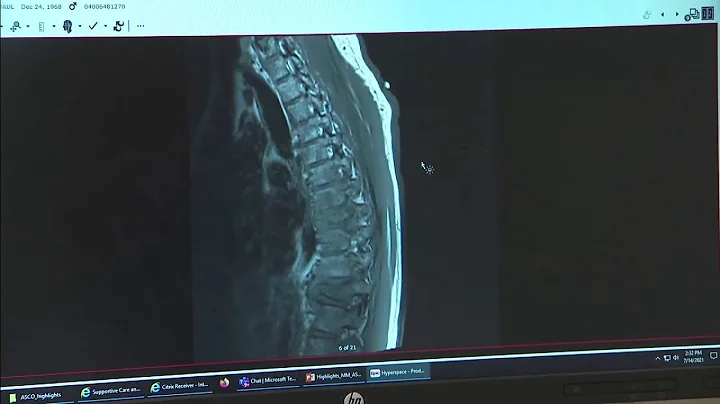
Multiple myeloma (MM) patients whose disease has progressed after CAR-T therapy often have limited treatment options1. Exportin 1 (XPO1) is a major nucleocytoplasmic transport protein that is commonly overexpressed in MM. Selinisol, a novel, oral selective inhibitor of nuclear export protein (SINE), inhibits XPO1 to induce tumor cell apoptosis. In December 2021, the National Medical Products Administration of China (NMPA) approved seliniso in combination with and dexamethasone for the treatment of patients with previously treated patients who have responded to at least one proteasome inhibitor, one immunomodulator, and an anti-CD38 Relapsed or refractory (R/R) MM refractory to monoclonal antibodies.
The 2022 European Hematology Association (EHA) Congress will be held from June 9 to June 12 in a combined online and offline format. The conference aims to promote the development of the blood field and announces a number of important research advances in blood system diseases. This EHA conference included the study of selinesol (ATG-010 trade name: Xivio ® ) combined with low-dose dexamethasone (Xd) in the treatment of Chinese R/R MM patients 1 who have previously received CAR-T treatment. Research results, Yimaitong has compiled the results and sincerely invites Professor Fu Weijun from Shanghai Fourth People's Hospital affiliated to Tongji University to interpret them for the benefit of readers! The
MARCH study brings clinical benefits to patients with R/R MM. The
MARCH study is a study of 82 patients who were previously exposed and refractory to a proteasome inhibitor (bortezomib) and an immunomodulator (lenalidomide). ) and a single-arm, multi-center, phase II clinical study of Chinese MM patients with end-line refractory disease. Selinesol (80 mg) combined with dexamethasone (20 mg) was administered orally on days 1 and 3 of each week, every four weeks. The results showed that the ORR of the modified intention-to-treat (mITT) population was 29.3% (95%CI 19.7, 40.4) (P=0.0001), including 4 very good partial response (VGPR) patients and 20 partial response (PR) patients. ) patient . The median time to PR or better was 1 month, and the median duration of response (DOR) was 4.7 months (95% CI 2.02, NE). As treatment lasts longer, patients experience deeper relief. The median follow-up time of was 10.6 months, the median progression-free survival (PFS) and the median overall survival (OS) of the mITT population were 3.7 months and 13.2 months, respectively. The most common grade 3/4 adverse events (AE) include anemia (57.3%), thrombocytopenia (51.2%), lymphocyte decrease (42.7%), etc. No significant drug accumulation was shown after multiple dosing2.
Subgroup analysis of the MARCH study, bringing new treatment options to R/R MM patients after CAR-T treatment
The study released at this EHA conference is a subgroup analysis of the MARCH study. A total of 10 cases were included in this analysis before study screening. Patients receiving CAR-T therapy after lymphodepletion therapy. All patients received oral treatment with selinesol (80 mg) combined with dexamethasone (20 mg) twice a week. This analysis aims to evaluate the efficacy and safety of the Xd regimen in Chinese patients with R/R MM who have previously received CAR-T therapy.
baseline analysis showed that the median age of the 10 patients was 58.5 years old. The median duration of disease from first diagnosis of MM was 5.2 years. A total of 6 patients had high-risk cytogenetic abnormalities, including 4 patients with del(17p). Three patients had plasmacytoma at baseline. Five patients had rapid disease progression (PD), with the median tumor burden increasing by 46.2% from enrollment screening to day 1 of cycle 1. The median number of previous treatment regimens received by patients was 9.5 (range: 5-12), and 8 patients had received more than 6 treatment regimens. Four patients were exposed to daratumumab (category III exposure). The efficacy analysis of
is shown in the following table: the ORR of patients was 50%, including 1 case of VGPR and 4 cases of PR patients . The disease control rate (DCR) was 70% (defined as efficacy reaching stable disease [SD] or above). As of February 10, 2022, all patients have experienced disease progression, and 5 of them are in the survival follow-up phase. The median duration of response (DOR) for was 1.4 months for (95% CI: 0.96, NE), and the median PFS for was 1.9 months (95% CI: 0.93, 3.74). Median OS was not reached, and the estimated 12-month OS rate was 70%.Among patients who experienced disease progression after treatment with the , 1 patient received the second CAR-T treatment, and 2 patients died due to rapid disease progression without receiving any treatment. 1 patients received selinesol combined with lenalidomide -based treatment regimen and achieved long-term disease control.
Table. Efficacy analysis results


Safety analysis showed that the most common grade ≥3 treatment-emergent adverse events (TEAEs) included anemia, thrombocytopenia, neutropenia, and nausea. Most events can be managed with appropriate supportive care or dose adjustment. Four patients experienced serious adverse events (TESAEs) during treatment, including anemia, pneumonia, neutropenia and upper gastrointestinal bleeding . No TEAEs leading to treatment discontinuation or death occurred during the entire period.
In summary, For the subgroup of Chinese R/R MM patients who urgently need follow-up treatment after CAR-T treatment failure, the Xd regimen can achieve remission and has a controllable safety profile. This suggests that selinexole is a highly effective anti-MM therapy and warrants further study, including the use of selinexole in combination with other anti-MM therapies in early front-line treatment.
Professor Fu Weijun commented:
MM is a malignant disease caused by abnormal proliferation of clonal plasma cells, which mostly occurs in the elderly.3. In the past half century, with the continuous advent of new drugs and the improvement of detection methods, the diagnosis and treatment of MM have been continuously improved and perfected. The clinical application of proteasome inhibitors, immunomodulators, monoclonal antibodies and CAR-T therapies has The treatment of MM has entered the era of targeted therapy. However, MM is still incurable to a large extent, and relapse and refractory disease are still the main problems in treatment.
As the world’s first approved oral selective nuclear export protein inhibitor (SINE), selinesol inhibits XPO1 activity, promotes the retention and reactivation of multiple MM-related tumor suppressor proteins (TSPs) in the nucleus, and reduces Oncogenic protein levels in the cytoplasm and activation of the glucocorticoid receptor pathway restore hormone sensitivity, thereby inducing tumor cell apoptosis. Previous STORM studies and BOSTON studies have confirmed that selinesol combined with multiple drugs has significant clinical efficacy in the treatment of R/R MM5,6. The
MARCH study is a single-arm, phase II registration study evaluating the Xd regimen in Chinese patients with R/R MM. The results showed that the patient ORR was 29.3% (95%CI: 19.7-40.4). The relevant clinical trial of selinesol in the treatment of R/R MM announced at the 2022 EHA conference is the result of a subgroup analysis of the MARCH study. This selinesol combined with low-dose dexamethasone is used for CAR-T treatment. Studies of patients with R/R MM have shown that the Xd regimen can bring effective remission to patients, with an ORR of 50%, prolonged survival, and an estimated 12-month OS rate of 70%, and the safety of the regimen is controllable1. In addition, after disease progression occurred in patients in the study, one patient achieved long-term disease control using selinesol combined with lenalidomide-based treatment. It can be seen that for patients with R/R MM whose disease has progressed after CAR-T treatment, has limited treatment options, and is in urgent need of treatment, the selinesol combination regimen provides a new treatment option. In view of selinesol's unique mechanism of action, Xd regimen can exert anti-tumor activity regardless of previous specific treatment.
Let us look forward to more research results on selinesol being published in the future. We hope that selinesol can solve the unmet clinical needs of more patients and bring clinical benefits to patients in the future!
Professor Fu Weijun
The Fourth People's Hospital of Tongji University
Member and Secretary of the Shanghai Hematology Special Committee
Deputy Chairman of the Blood Transformation Special Committee of the Shanghai Pharmaceutical Industry Association
Standing Committee Member of the Shanghai Society of Traditional Chinese and Western Medicine and Hematology
Myeloma Specialist of the Chinese Medical Education Association Deputy Chairman of the Committee
Member of the Diagnostic Group of the Hematology Special Committee of the Chinese Medical Association
Member of the Asian Myeloma Working Group
Deputy Editor of "Annals of Chinese Internal Medicine", Chief Editor of Hematology
Note: Xivio® is plugged Liniso trade name. In December 2021, China's National Medical Products Administration (NMPA) approved Antengene's new drug marketing application for selinesol, in combination with dexamethasone, for the treatment of patients with previously treated and at least one proteasome inhibitor. agent, an immunomodulator and an anti-CD38 monoclonal antibody for relapsed or refractory multiple myeloma (R/R MM). The content of the
article is only for academic exchange use by medical and health professionals. If you are a non-medical and health professional, please actively exit browsing and reading, otherwise you should bear the related risks and consequences by yourself.
Reference:
 . 2022EHA Library. Abstract PB19999. Fu W. Jun 10 2022; 358852
. 2022EHA Library. Abstract PB19999. Fu W. Jun 10 2022; 358852 . Qiu L, et al. BMC Med. 2022;20(1):108. Published 2022 Apr 5.
. Qiu L, et al. BMC Med. 2022;20(1):108. Published 2022 Apr 5.- . Chinese Medical Doctor Association Blood Physician Branch, et al. Chinese Journal of Internal Medicine, 2022, 61(05): 480-487.
- . Lin Quande, et al. Progress in immunotherapy for multiple myeloma. Leukemia·Lymphoma, 2021, 30 (01): 5-10 . . Chari A, et al. N Engl J Med. 2019 Aug 22;381(8):727-738.
Editor: Hui-Y
Reviewer: Irena
Typesetting: Wenting
Execution: Quinta





















